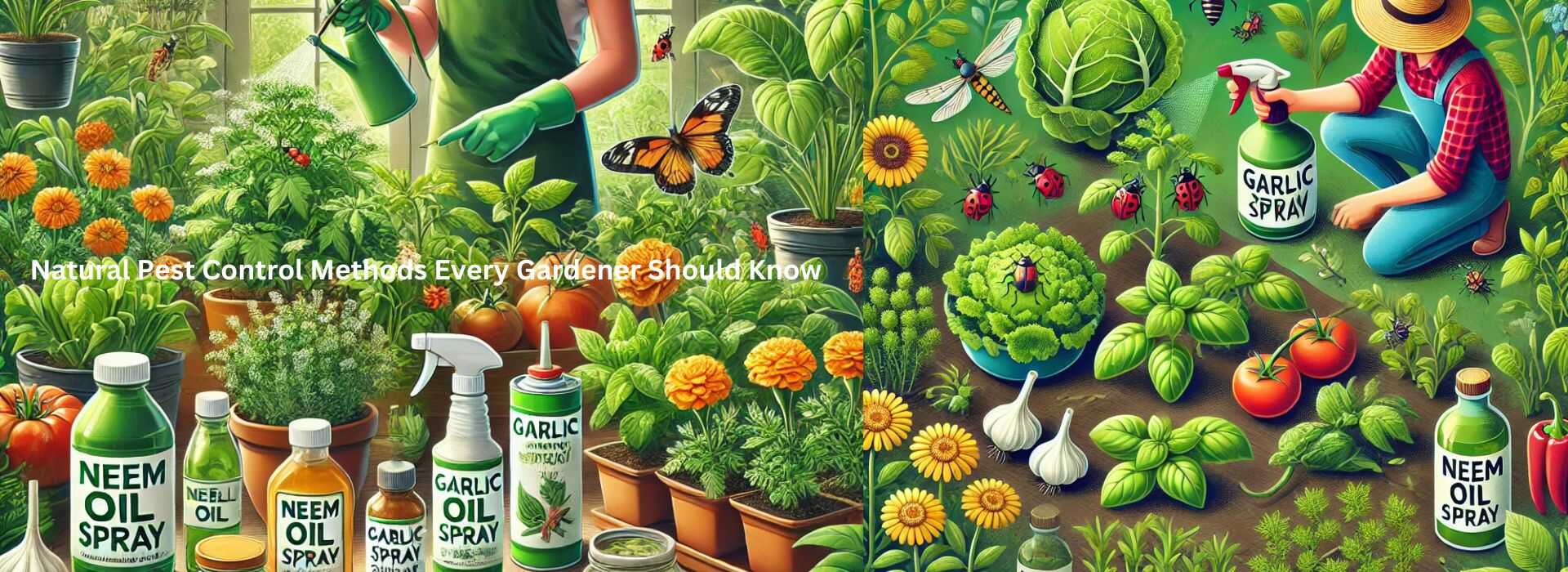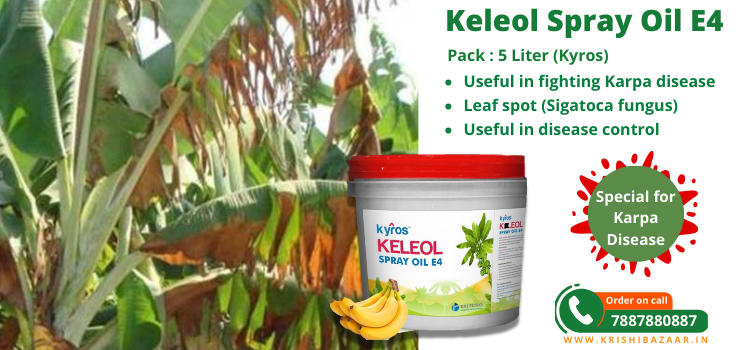Natural Pest Control Methods Every Gardener Should Know
April 8, 2025Natural
Pest Control Methods Every Gardener Should Know
Keep your garden healthy without harming the environment
When
you’ve nurtured your garden with care and dedication, the last thing you want
is a pest infestation ruining your hard work. While chemical pesticides might
offer quick fixes, they often come at the cost of long-term soil health,
pollinator safety, and even human health. The good news? Natural pest
control methods can be just as effective—without the harmful side effects.
In
this blog, we’ll explore eco-friendly, natural ways to keep pests away
and protect your plants, soil, and the surrounding ecosystem.
🌱
Why Choose Natural Pest Control?
Before
diving into the methods, it’s important to understand why natural pest
control is the smarter choice for gardeners:
- ✅ Safe for humans and pets
- ✅ Preserves beneficial insects like
bees and butterflies
- ✅ Improves long-term soil and plant
health
- ✅ Reduces chemical runoff into water
bodies
- ✅ Cost-effective using easily available
household items
🐞
1. Introduce Beneficial Insects
Not
all bugs are bad! Some insects are natural predators of garden pests.
- Ladybugs eat aphids, mites, and whiteflies.
- Lacewings target aphids and small caterpillars.
- Praying
mantises feed on a
wide variety of garden pests.
Tip: Plant flowers like marigolds, dill, and
fennel to attract these friendly bugs.
🌿
2. Use Neem Oil Spray
Neem
oil is a powerful natural pesticide extracted from the neem tree—widely
available and used in Indian and organic farming.
- Acts as a repellent
and growth disruptor for over 200 pests.
- Safe for
bees, earthworms, and other beneficial creatures.
DIY
Neem Spray Recipe:
- 2 tsp neem
oil
- 1 tsp mild
liquid soap
- 1 liter of
water
Mix well and spray on affected plants in the early morning or evening.
🧄
3. Make Homemade Garlic or Chili Sprays
Garlic
and chili are potent natural deterrents for soft-bodied insects.
Garlic
Spray:
- Blend 2
bulbs of garlic with water
- Add a drop
of soap and dilute with 1 liter of water
- Let it sit
overnight, then strain and spray
Chili
Spray:
- Blend 4-5
chilies with water
- Boil and
cool, then strain and spray
These
sprays irritate pests without harming plants.
🌼
4. Plant Pest-Repelling Companions
Certain
plants act as natural insect repellents. Incorporating them in your garden can
ward off pests.
- Marigolds repel nematodes and aphids
- Basil repels mosquitoes and whiteflies
- Mint deters ants and cabbage moths
- Lavender keeps moths and fleas away
This
is called companion planting, and it helps maintain ecological
balance in your garden.
🪲
5. Use Diatomaceous Earth (DE)
Diatomaceous
Earth is a natural, non-toxic powder made from fossilized algae. It
works by dehydrating insects on contact.
- Works well
for ants, beetles, and slugs
- Sprinkle
around plant bases or on leaves where pests are spotted
- Avoid using
during flowering to protect pollinators
🧽
6. Handpicking & Barriers
Sometimes
the best method is the simplest:
- Handpick
larger pests like
snails, caterpillars, and beetles early in the morning
- Use netting
or mesh to protect
young seedlings
- Install copper
tape or eggshells around plants to deter slugs
These
methods are especially useful in small gardens or home balconies.
💧
7. Encourage Healthy Soil & Plants
The
healthier your plants, the more resistant they are to pest attacks.
- Use compost
or vermicompost to nourish soil
- Ensure proper
spacing to allow airflow
- Water
consistently but avoid
overwatering, which attracts pests
Healthy
plants can often outgrow or recover from minor pest damage without the
need for sprays.
🌾
8. Use Traps for Monitoring
Use
homemade traps to monitor pest populations and catch early infestations:
- Yellow
sticky traps for
whiteflies and aphids
- Beer traps for slugs and snails
- Light traps for night-flying moths
These methods help you stay one step ahead of a potential outbreak.
✅ Final
Thoughts: Choose Nature, Not Chemicals
Natural
pest control methods not only protect your plants but also preserve the
balance of your garden’s ecosystem. With a bit of observation, care, and
homemade remedies, you can effectively manage pests and enjoy a healthy,
thriving garden year-round.
So
the next time you spot a garden pest, think twice before reaching for a
chemical spray. Your garden—and the planet—will thank you!
Happy gardening! 🌿🐞🌻
At krishibazaar.in, you can find and buy various agricultural products. For agricultural guidance on selecting the most suitable products for your crops, please contact or WhatsApp at +917887880887.






Guest reviews
No reviews found for this Blog